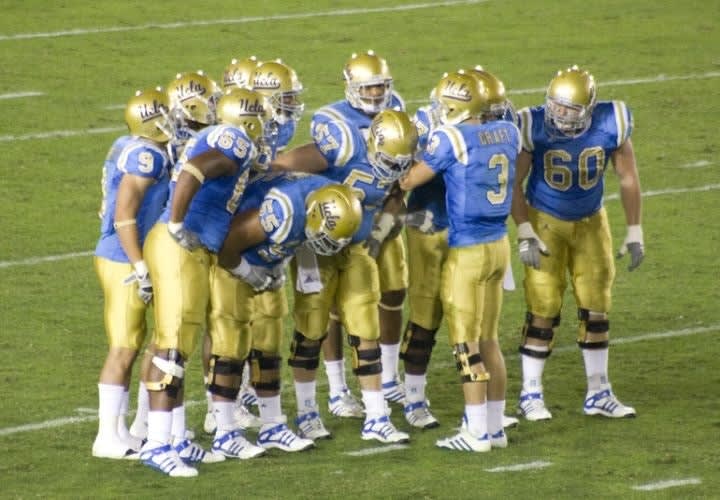My Field Training Officer (FTO) often compared police work to playing on a football team. He would say, "The team with the least amount of penalties wins."
The analogy always stuck with me and after 10 years as an officer, it still rings true. When I played high-school football, I had an established routine on game day—eating the same breakfast, listening to the same pre-game mix tape, and putting my equipment on a certain way.
When I entered law enforcement, I caught myself having the same pre-game rituals. While I prepare for work, I have my routines such as putting on the uniform a certain way, eating a certain breakfast, sitting in a certain seat in roll call, and listening to music that pumps you up for the day.
As I thought more about the similarities between football and law enforcement, I began to remember sitting in the locker room, talking with my teammates, and getting ready for the game. This was like sitting in roll call talking with fellow officers before the shift started.
I've met officers over the years with similar personalities to my old football buddies. There were the guys on the team who complained about everything and seemed to not want to be there. They would complain that practice sucked, bitch about why we were practicing plays we would never call in a game, and predict that we would get our butts kicked by a better team. Their negativity became contagious and spread through the locker room. Guess what happened? Yes, we would end up getting our butts kicked.
There were also the guys in the locker room after a game that we lost who still appeared happy because they had a great individual game. When they knew scouts were in the stands, they were willing to sacrifice the team for their individual gain. The coach once used the line, "There is no 'I' in team," and one of them said, "But there is an 'M' and an 'E.'" Of course, the guy didn't have the courage to say it loud enough for the coach to hear him.
Then there are the team players. These guys were the backbone of the squad. These guys wanted to be part of something they believed in, so they always had a great time doing it. These are the guys you hear laughing and joking around in the locker room or in roll call just before heading out to the field. They're willing to sacrifice their bodies and play their guts out, so the team can win.
Lastly, there are the guys I like to call "leader of men." These guys may not have been the team captains, but they had qualities that inspired others to follow them. Officers seemed to breathe a little easier when they knew those guys would be at work.
Law enforcement is a contact sport. If you doubt me, just check out the officers on your injured reserve list. For a team to be successful, its members must figure out how to perform individually and as a team. Sometimes cuts need to be made and players have to be let go. There are also players who need to know when their time has passed either due to diminished skills or the loss of their competitive drive. Sometimes, a player must walk away from the sport for their benefit, as well as the team's.
We all need to evaluate our roll on the team. Be realistic about your current roll, and visualize what roll you'd like to play. Whatever you decide, always try to be the best player you can.
Larry Parham is a detective with the the Sedalia (Mo.) Police Department's Strike Team Investigations of Narcotics and Gangs (S.T.I.N.G.) unit.












